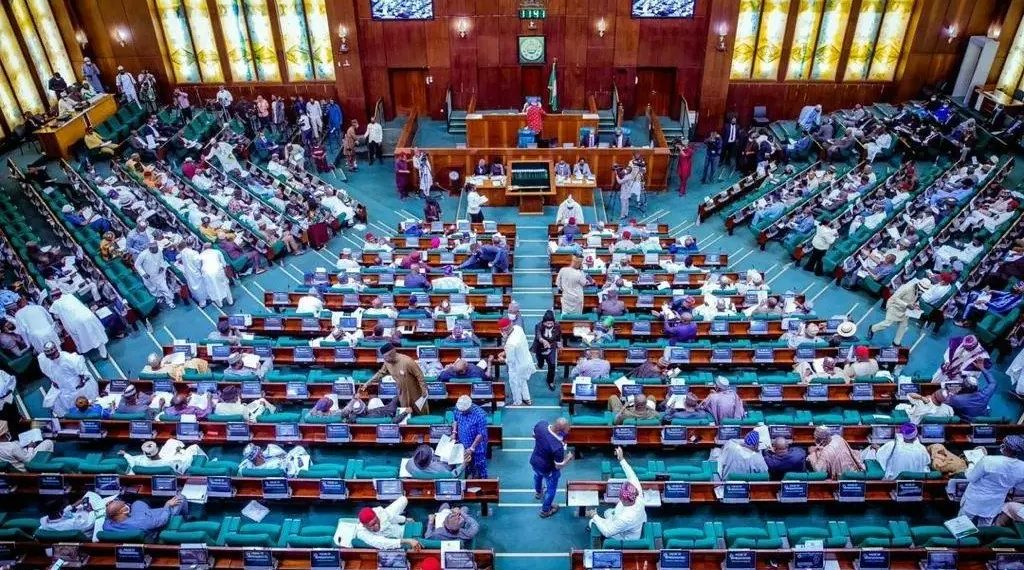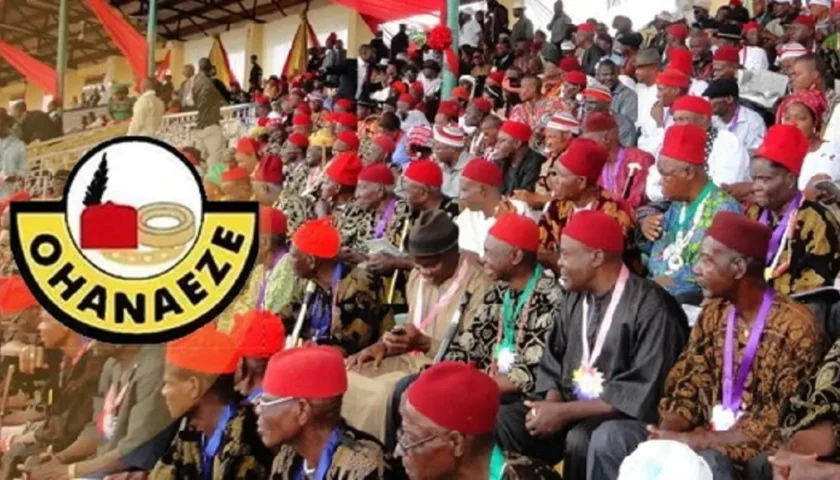The salaries and allowances for the incoming lawmakers may cost the country about N49billion, findings have shown. The figure covers the salaries and allowances of state and federal lawmakers.
The salaries and allowances are based on data collated from a document obtained from the website of the Revenue Mobilisation and Fiscal Allocation Commission. However, the total allowances are higher than reported as the amount for a number of the allowances was not disclosed.
While N32.60bn will be spent at the national level, N16.32bn will be spent at the state level. A breakdown shows that the annual basic salary of the President of the Senate is N2.48million each year (about N9.94million in four years) while that of the Deputy President is N2.31million yearly (about N9.24million in four years).
Out of 19 allowances assigned to the Senate President and his deputy, only five allowances were assigned a specific figure. The allowance of the speaker will gulp about N5.58million (N22.30million in four years) which includes an annual N409,968 for constituency allowance, N163,987.50 for annual leave, and N3.28million severance gratuity.
The allowance of the deputy speaker will be paid about N4.92m (N19.67m in four years), and this includes N361,495 constituency allowance, N144,598 for annual leave, and N2.89m severance gratuity.
In total, the basic allowances for the 36 speakers and their deputies will cost the nation N1.51billion. There are 784 members in the 36 state Houses of Assembly each of whom is entitled to N1.34m annual salary or N5.34million in four years and an allowance of N12.97million.
In total, the 784 members cost their states about N4.19bn in salary and N10.17billion in allowance. Meanwhile, checks indicated that the statutory budgets of the National Assembly and its affiliate bodies in the past eight have totalled over N1.084trillion.
From 2016 to 2022, the annual budgets of the National Assembly cumulatively amount to about N915.5billion, while the parliament is currently implementing an N169billion budget for 2023, about N30billion more than its expenditure last year.
In 2016, the NASS got N125billion budget; in 2017, N125billion; 2018, N139.5billion; 2019, N125billion; 2020, N128billion; 2021, N134billion; 2022, N139billion while N169billion was allocated for the current fiscal year.
The political arm of the National Assembly has the Senate and the House of Representatives with 109 and 360 members, respectively, while the administrative/bureaucratic arm has the National Assembly Management headed by the Clerk to the National Assembly, and the National Assembly Service Commission.
The federal parliament has affiliate bodies including the National Assembly Service Commission, the National Assembly Institute of Legislative and Democratic Studies (the academic arm), Public Complaints Commission, and the National Assembly Budget and Research Office.
Details of National Assembly’s 2023 budget are as follows: Severance/inauguration of outgoing and incoming 9th and 10th Assembly (legislators and legislative aides) – N30.1billion; National Assembly Office, N30.4billion; Senate, N33.2bn; House of Representatives, N51.9billion; National Assembly Service Commission, N10.5billion; Legislatives Aides, N16.5billion; PAC – Senate, N118.9million and PAC – House of Representatives, N142.7million.
Others are the National Institute for Legislative and Democratic Studies, N7.4bn; Service Wide Vote, N671.3million; Office of Retired Clerks and Permanent Secretaries, N1,059,121,701; Appropriation Committee Department – Senate, N125million; Appropriation Committee Department – House, N165m; National Assembly Library building (ongoing), N4.2billion.
Also, in the NASS budget is N11.3billion for General Services; hosting of Conference of Speakers of African Parliament, N127.5million; NASS Liabilities, N8.5billion; NASS E-Library, N255million; NASS Dashboard, N118.1million; Constitution Review, N850million; completion of NASS Library Complex (repeated), N7.5billion; completion of NILDS HQ, N2.5billion and construction of NASC building, N10billion.
The allowances are based on data collated from a document obtained from the website of the Revenue Mobilisation and Fiscal Allocation Commission. As approved by RMAFC, lawmakers at the national level are entitled to 200 per cent of their basic annual salary as accommodation allowance and 300 per cent of their annual salary as furniture allowance.
Lawmakers at the state level are entitled to 50 per cent or 60 per cent of their annual basic salary as accommodation allowance and 150 per cent of their salary as furniture allowance. However, while the accommodation allowance is paid yearly, the furniture allowance is paid once in four years.
A breakdown indicates that the two allowances will gulp N9.82billion at the national level and N4.53billion at the state level. While the allowance for the Senate will cost a total of N1.98billion, the House of Representatives would gulp N7.85billion.
The allowances for the senate president and his deputy are higher than that of other senators. For furniture allowance, the speaker would get N2.46million each while the deputy speaker may be paid N2.18million.
In total, the 36 speakers will get about N141.84million as accommodation allowance and N88.56million as furniture allowance, while the deputy will get about N125.28million as accommodation allowance and N78.48million as furniture allowance.
Each of the 784 members across the states is entitled to N802,335 yearly as accommodation allowance, which is about N3.21m in four years, and N2.01million as furniture allowance. In total, the 784 members would receive about N2.52billion as accommodation allowance and N1.58billion as furniture allowance.
But the Deputy Director of Socio-Economic Rights and Accountability Project, Kolawole Oluwadare, said it was not acceptable in the face of growing poverty and public debts.
Oluwadare noted, “The salaries and wages of members of the National Assembly have always been problematic. How much does a senator take home as his/her pay? We are all aware of the controversies it has caused in the past. We do not know.
“The recurrent expenditure of the National Assembly is very high and that also rises along with the various allocations to the National Assembly over the years and it is totally unacceptable and not sustainable in the face of growing poverty and public debts. It is not in the best interest of Nigeria.
“So, it is not right of any of them to do that and I want to advise the incoming government not only to slash but to only pay sitting allowance which would be moderate and the equivalent of what they deserve if they had been in civil service. So what they have done is to demonstrate to the world that we are simply wasteful and unnecessarily avaricious because what they are funding is a personal luxury.”





